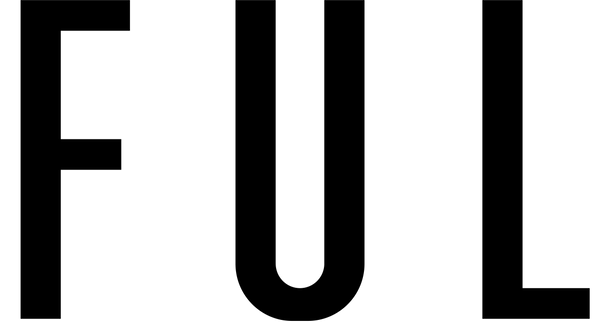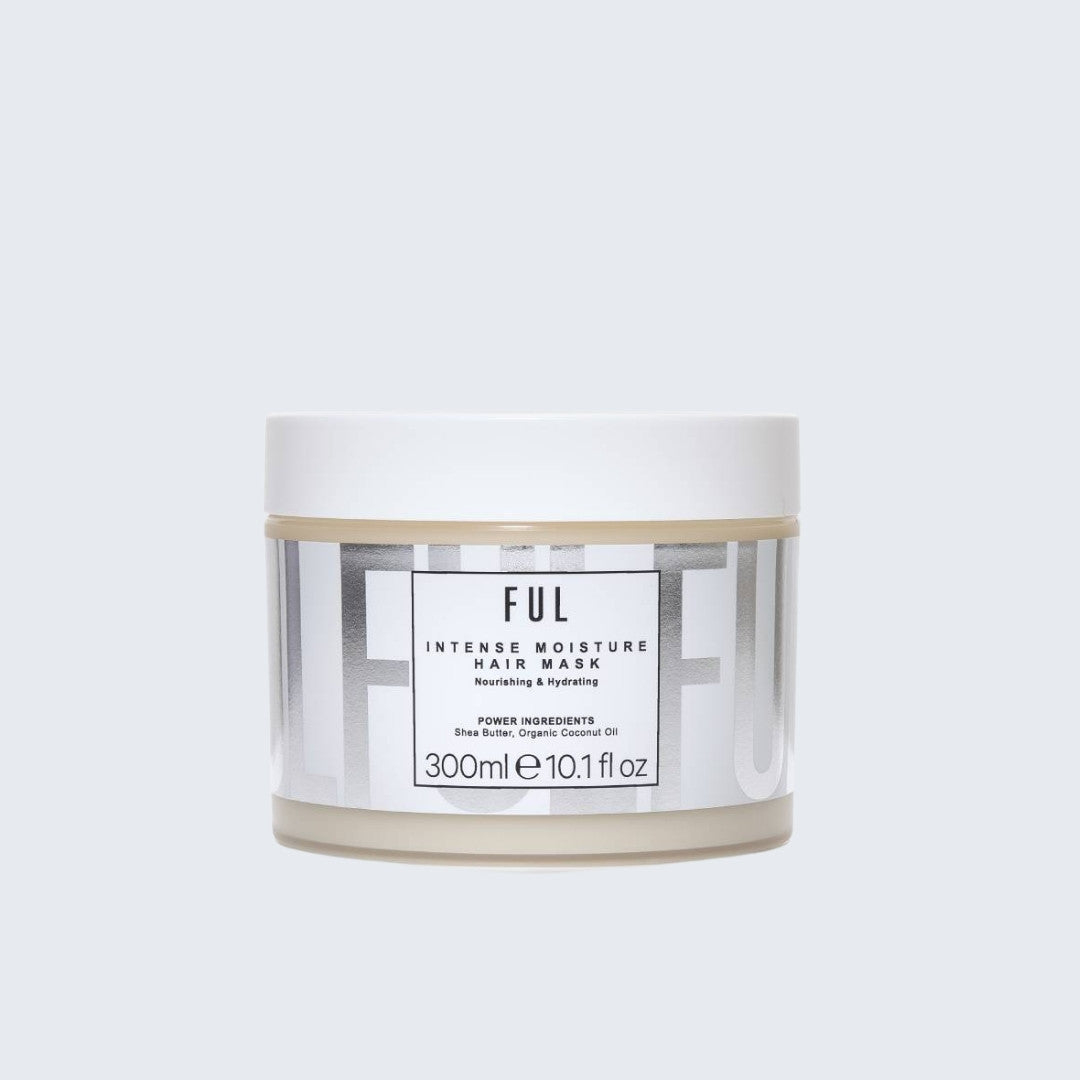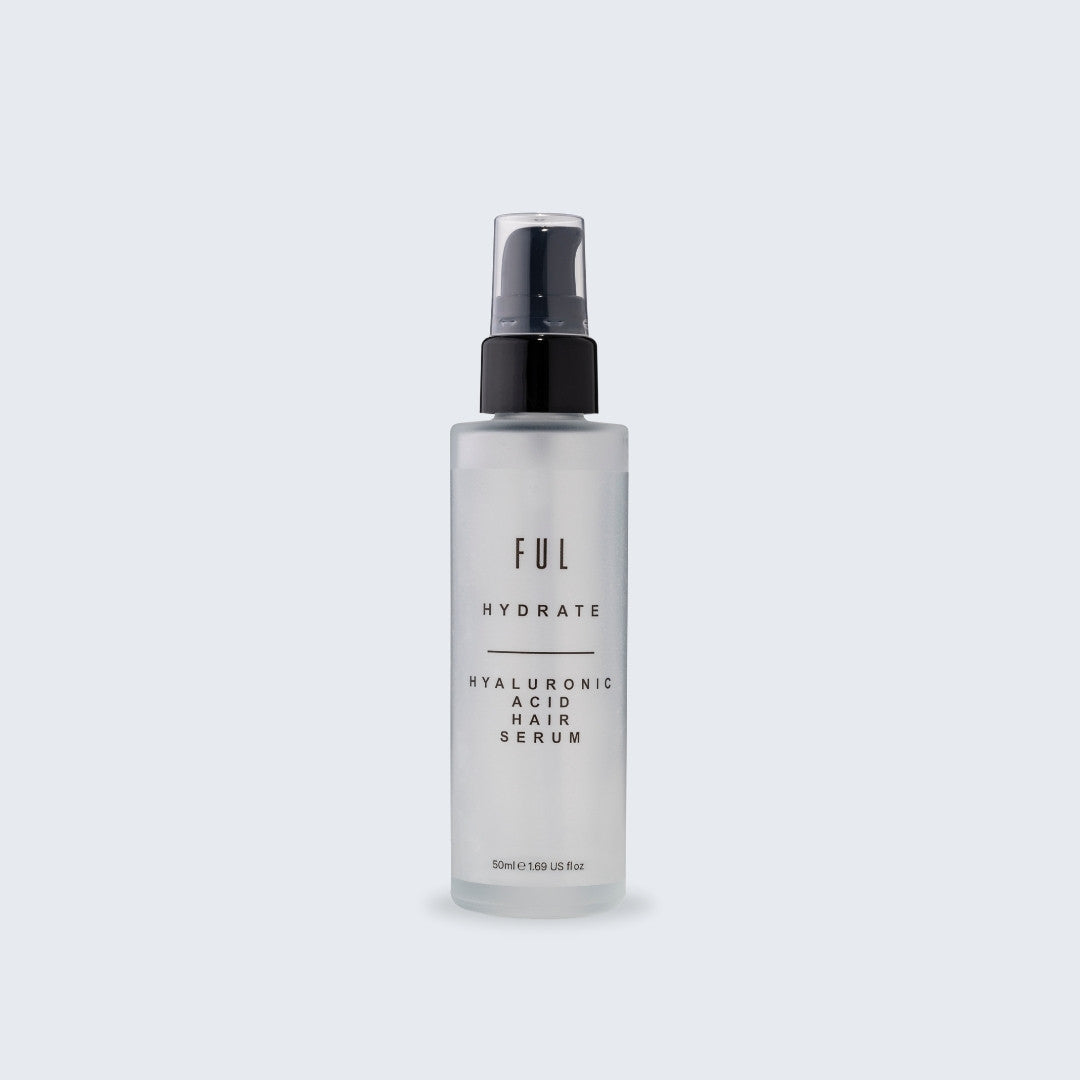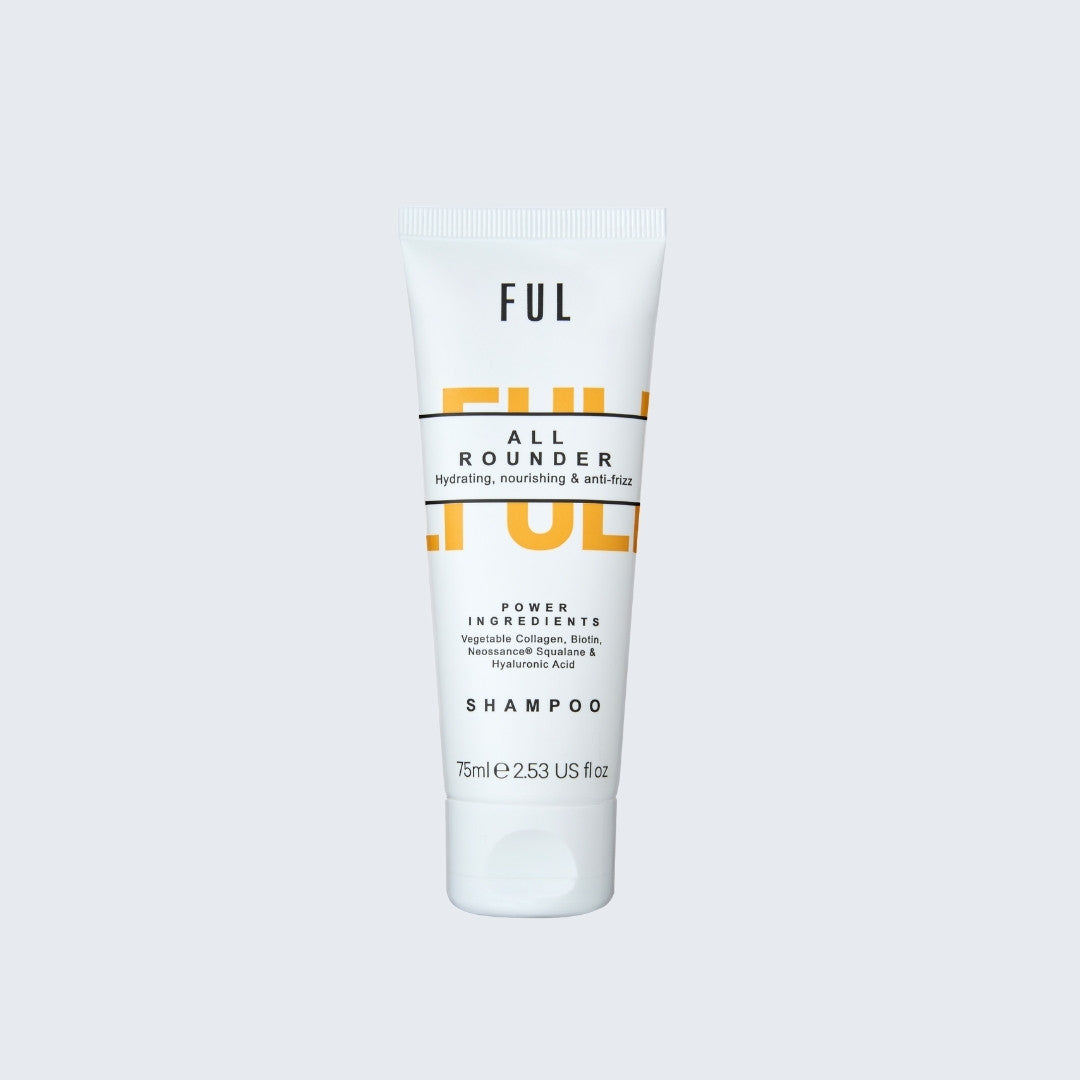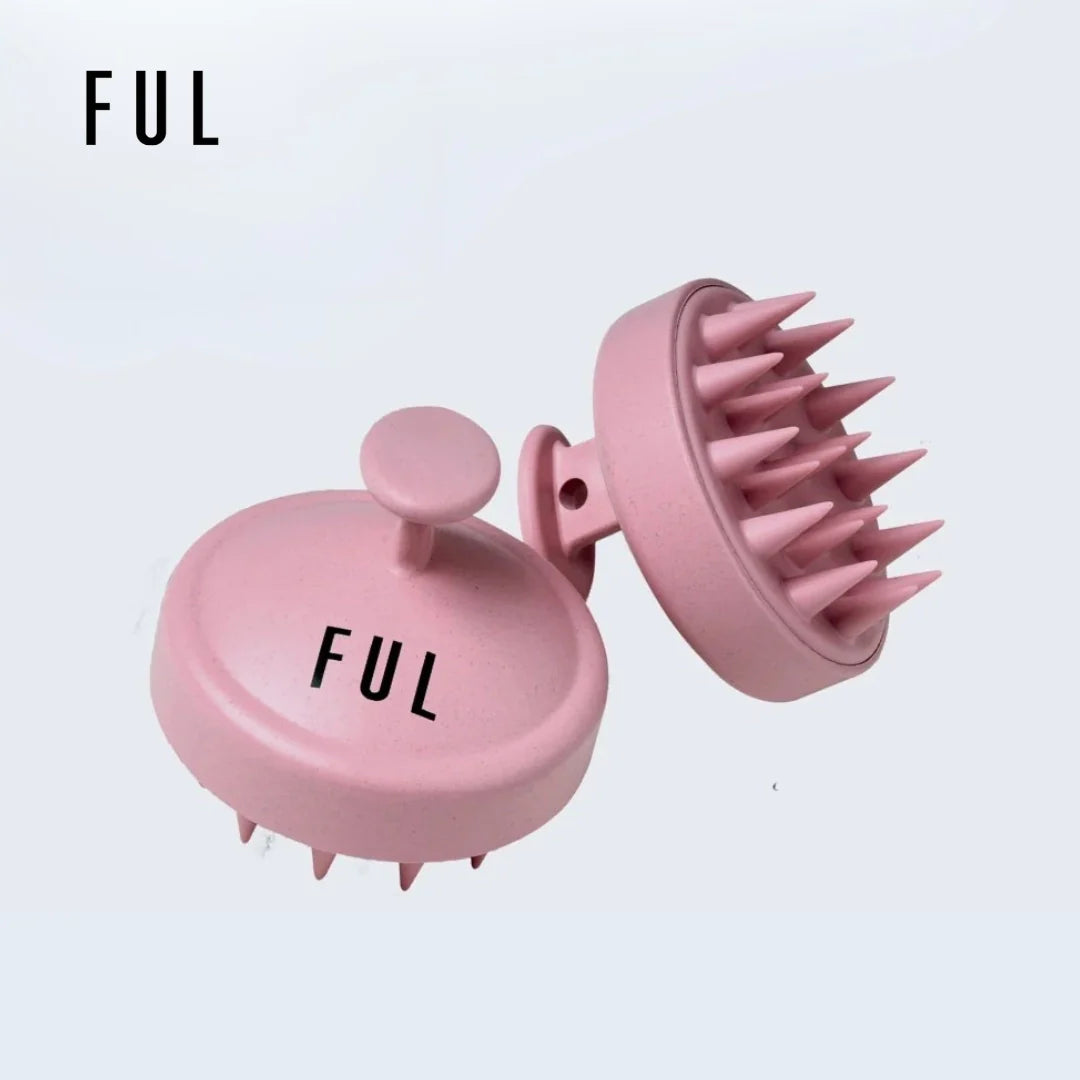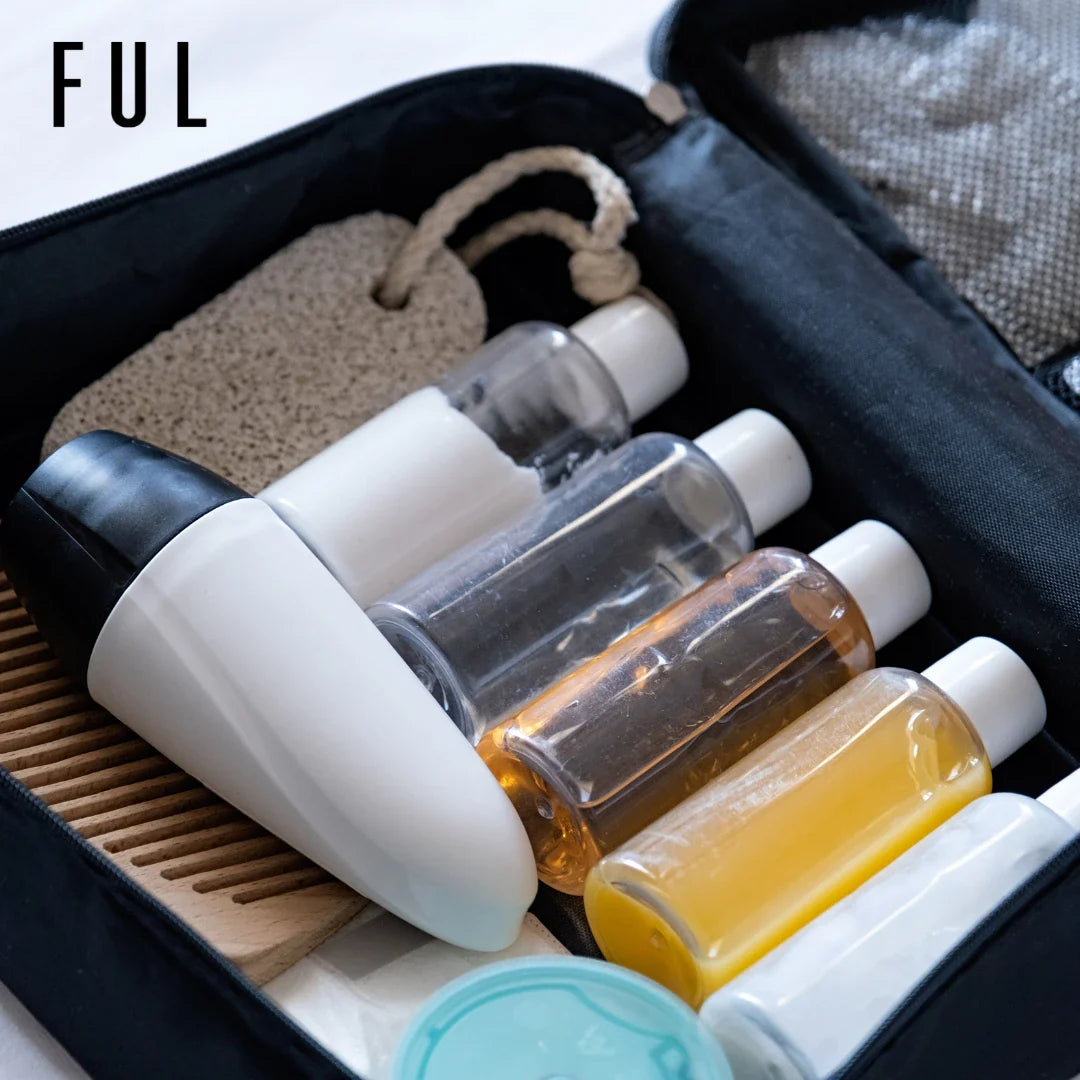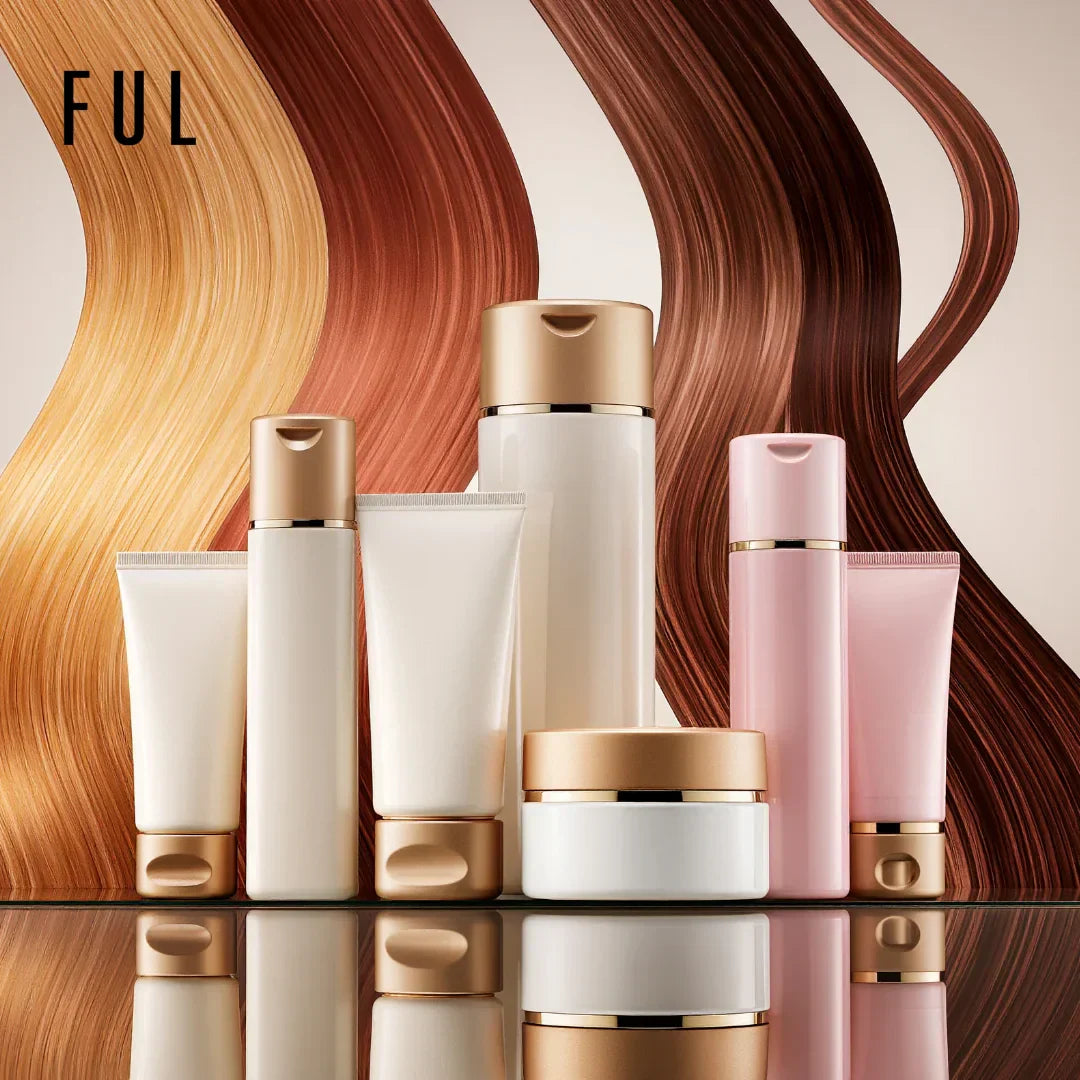Oil Control
The good news is that with the right care and habits, you can manage excess oil production and keep your hair looking fresh and balanced. Here’s a guide from Live True London experts on how to control oily hair, ensuring it stays clean and vibrant.
Choose the Right Products
The foundation of managing oily hair is selecting the right shampoo & conditioner
- Clarifying Shampoo: Use a clarifying shampoo once a week to remove buildup and excess oil. These shampoos deep-clean your scalp and hair, leaving them fresh and oil-free. FUL's Purifying Shampoo is formulated with Activated Charcoal to purify your hair and scalp from any product, oil and pollution build up.
- Clarifying Hair Mask: Use a clarifying hair mask to remove excess oils and buildup but also to lock in moisture. If you deal with dry ends but an oily scalp FUL's Charcoal Hair Mask is designed to eliminate oils and product build up all whilst locking in moisture and hydrating your ends.
Wash Your Hair Properly
How you wash your hair can impact oil production.
- Frequency: Wash your hair every other day or as needed. Over-washing can strip your scalp of natural oils, causing it to produce even more oil to compensate.
- Technique: Massage your scalp gently with your fingertips to cleanse thoroughly without overstimulating the oil glands. Rinse thoroughly to ensure no product residue is left behind. Alternately you can use a scalp massager to gently massage the scalp and allow your shampoo or treatment to cleanse your scalp.
Avoid Heavy Styling Products
Heavy styling products can weigh down your hair and contribute to oiliness.
- Minimal Products: Use minimal styling products and choose lightweight, oil-free formulas. Avoid products with heavy oils or silicones that can make your hair look greasy.
- Dry Shampoo: Dry shampoo is your best friend for oily hair. It absorbs excess oil and adds volume. Use it between washes to keep your hair looking fresh.
Use the Right Tools
The tools you use can affect how oily your hair becomes.
- Clean Brushes: Regularly clean your hairbrushes to remove buildup of oils and styling products. Dirty brushes can transfer oil back to your hair.
Avoid Touching Your Hair
Constantly touching your hair can transfer oils from your hands to your hair, making it look greasier.
Rinse with Cold Water
Rinsing your hair with cold water helps control oil production.
- Cold Water Rinse: Finish your hair wash with a cold water rinse to close the cuticles and reduce oil buildup.
Controlling oily hair involves a combination of proper hair care, mindful product choices, and healthy lifestyle habits. By following these tips, you can manage excess oil production and enjoy hair that looks fresh, balanced, and vibrant.
